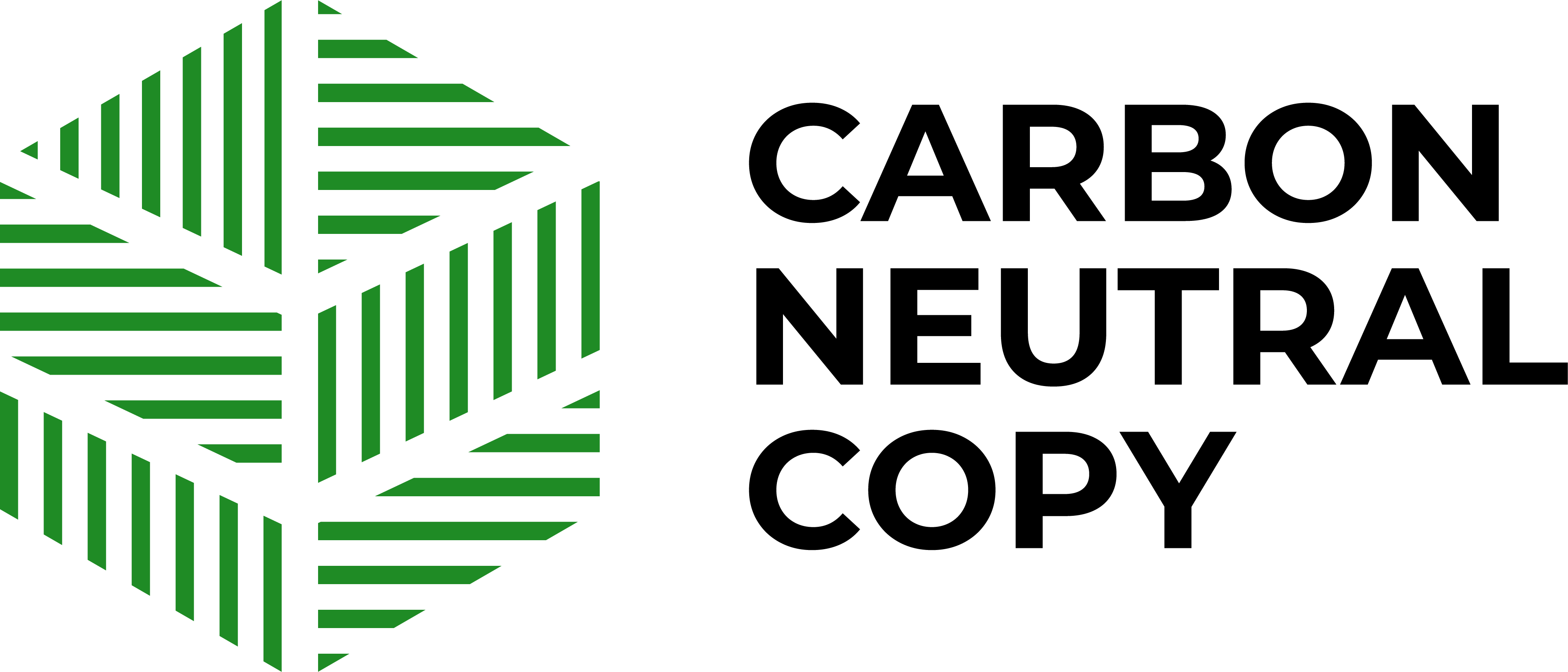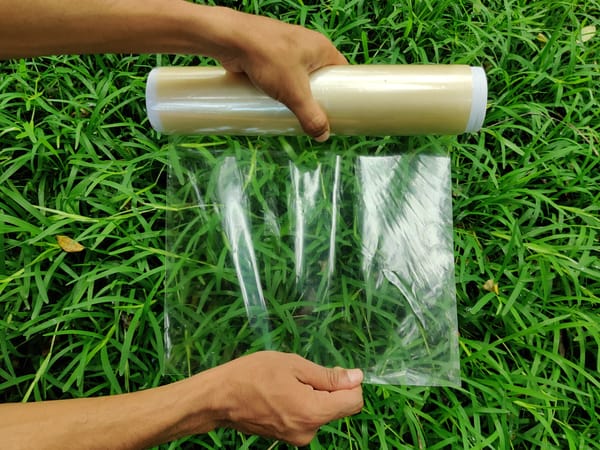How Circular Helps Manufacturers Transition From Virgin to Recycled Plastic
Digital supply chain platform Circular is bringing much-needed efficiency to the recycled plastic market.

At first glance, switching from virgin, oil-based plastic to recycled plastic might seem like a no-brainer. Consumer demand, regulation, and corporate sustainability goals all point toward making this shift.
“Fortunately, the train has left the station on the goal itself…I don't think we need to convince brands too much that they need to change their virgin plastic for recycled or sustainable alternatives,” says Ian Arthurs, CEO and founder of digital supply chain platform Circular.
As he points out, the Ellen MacArthur Foundation’s Plastics Pact Network, for example, has over 1,000 organizations onboard to create a circular economy for plastic. But there’s still a ways to go. The foundation’s latest progress report from 2022 noted that reaching the aggregate target of 26% post-consumer recycled “plastic by 2025 will require progress to accelerate further, along an exponential growth curve.”
Yet changing supply chain and manufacturing practices to source recycled plastic and implement more sustainable materials into products is easier said than done.
“The issue is that almost all of those companies are struggling to hit their goals, particularly on using post-consumer recycled plastic. And the reasons for that really are about market inefficiency,” says Arthurs.
That’s where Circular comes in. The platform connects buyers and sellers in the commodities market, starting with post-consumer recycled plastic, such as by enabling buyers to send requests for quotes (RFQs) through the platform, which has over 2,500 vetted suppliers.
Reliably replacing virgin plastic with recycled plastic is possible, says Arthurs, “it's just very new and requires a lot of collaboration, innovation and thinking within a company of how to make that happen.”
To date, this hasn’t always been a very efficient process, considering the extra steps and complexity needed to find suppliers, test materials, manage logistics, etc.
Many companies are trying to figure out “how do we make it a repeatable, affordable process that is efficient. And that's the journey we're on with our customers. We're helping to digitize that inefficient process so that they can rely on it,” says Arthurs.
What Does Lego’s Recycled Plastic Setback Mean for the Industry?
The recent news that Lego decided to stop moving forward with plans to use recycled PET plastic in its signature bricks represents how even well-intentioned companies can run into roadblocks in the circular economy. But while Lego faced some legitimate challenges, these problems aren’t necessarily representative of what every company faces in the transition from virgin to recycled plastic.
At Lego, the company was trying to replace a particular type of plastic — oil-based ABS — with recycled PET. However, because these are different types of plastic, using the recycled PET would have required additional ingredients and processing to match the qualities of Lego’s current bricks, the Financial Times reports.
Doing so at scale would have required a total reorganization of the company’s manufacturing, which would have led to a net increase in carbon emissions, the FT adds. Instead, Lego is looking more into other options, like gradually incorporating more bio-based and recycled materials into ABS bricks and looking into reuse programs.
“This is the nature of innovation – especially when it comes to something as complex and ambitious as our sustainable materials programme. Some things will work, others won’t,” says a statement from Lego. “We have learned a lot and will apply those learnings as we continue to develop new materials and explore other ways to make our bricks more sustainable.”
While this may seem like a big setback for the transition to the circular economy—particularly the recycled plastic component—the story is perhaps more symbolic of how there’s a lack of uniformity in the recycled materials market, and the results will differ among companies.
Lego’s decision “was completely appropriate for them. I don't necessarily think that applies writ large to the industry though,” says Arthurs. “I worry that the [FT] Lego article, while I thought it was very well written and insightful, if interpreted the wrong way, can lead somebody to believe that there's not a carbon benefit to transitioning to sustainable plastics from virgin plastics.”
If Lego was able to find more of a 1-1 replacement for its plastic, that could potentially avoid the carbon emissions and cost associated with reorienting manufacturing processes. While that might not be an option for Lego, “other companies who are trying to replace like for like [types of plastic] are finding that you can replace virgin with recycled,” says Arthurs. “And when you do that, typically you have a significant carbon footprint reduction or you avoid further carbon emissions.”
Indeed, research from Imperial College London notes: “Recycling wins over virgin production on all environmental measurements, especially when it comes to carbon emissions. Estimates vary with the type of recycling process used, but researchers agree that recycling and remanufacturing plastic saves between 30% and 80% of the carbon emissions that original processing and manufacturing produces.”
Still, there are some common barriers to more widespread adoption that Circular is trying to solve. These include:
1) Access: Not only do companies need to source the right type of recycled plastic, but they need to make sure they’re sourcing from a trusted supplier, says Arthurs.
“A typical large buyer will take about 12-18 months, depending on what they're doing, to onboard a new supplier. They have to go through multiple tasks,” he says, like understanding the material source, ensuring a product doesn’t involve child labor, etc. There's “typically a list of between 10 and 50 things that the supplier needs to check off. That can be automated on our platform. We can save a bunch of time.”
2) Price: In many buyers’ experience, sourcing from sustainable suppliers involves a green premium, with recycled plastic being about 10-20% more expensive than virgin plastic, says Arthurs. “So not only is it hard to get, but it's hard to convince the CFO or whoever's paying the bills that this is a smart thing to do economically.”
That’s where the efficiency of a digital platform like Circular helps. Competition, by way of being able to efficiently receive quotes from multiple suppliers through the platform’s RFQ process, can bring down prices.
“Going through a competitive bidding process with very specific information on the buy and the sell side, we're finding that we can typically get significant savings versus market index pricing. So mostly, aside from a few niche searches that we've done, we're finding most quotes that we're getting from an RFQ from suppliers are coming in at, or below, virgin pricing,” says Arthurs.
Over time, the economics of recycled plastic will likely improve further, but right now it’s a bit of a chicken vs. the egg problem. As the two sides come together more easily through platforms like Circular, however, that problem could potentially be solved.
“Buyers, on one hand, say, they need more access to affordable material that's reliable. And then suppliers say they need more long-term contracts. They're both kind of asking for the same thing,” says Arthurs.
Plus, regulation could increasingly make the economics of recycled plastic more viable, says Arthurs, considering that potential fines for not switching could outweigh associated costs of transitioning to recycled plastic.
3) Quality: Lastly, buyers can run into quality issues with recycled plastic. While often solvable, the reality is that recycled materials aren’t always as consistent.
“Because it comes from a waste product, there’s a need for it to be tested. It typically has some level of soot or impurity in it that can cause problems in manufacturing processes, depending on what you're doing,” explains Arthurs.
“So it carries additional maintenance costs and some other considerations into the manufacturing process that just add complexity. And whenever you add complexity, generally, it requires some significant thought, particularly if you're a multi-billion dollar company who has set up production lines to be efficient and run on virgin plastic. It's a big request and a big change to go to something that is not as easy to find, more expensive, and less reliable.”
But that doesn’t mean these challenges are insurmountable.
“Those quality things can be managed, it's just hard work,” says Arthurs. “The data behind all of this is pretty hard to manage. So that's what we're doing. We're putting it all together in one platform.”
What’s Next After Recycled Plastic?
As a startup, Circular is focused on improving the recycled plastic market, but the company has its sights set on eventually working with additional recycled materials, like glass, metal, and paperboard, says Arthurs. Bio-based plastics are another adjacency the company could explore.
Plus, Circular could grow its emphasis on other aspects of circular supply chains and the circular economy, including reducing and reusing materials.
“As we grow, we will offer services that connect experts and allow companies to find new ways to design products” with closed loops in mind, he says. “But it's not the core of our business yet. The core of our business is connecting a buyer who wants to buy thousands or millions of tons of plastic and making a real dent in that recycled market.”
Disclosure: Carbon Neutral Copy's parent company, JournoContent LLC, has clients involved in sustainability-related areas, among others. The owner of Carbon Neutral Copy, Jacob (Jake) Safane, has investments in sustainability-related companies, among others.
As such, conflicts of interest related to these and other investments/business relationships, even if unintended, may exist at times. Please email info@carbonneutralcopy.com if you'd like further clarification on any issues.





